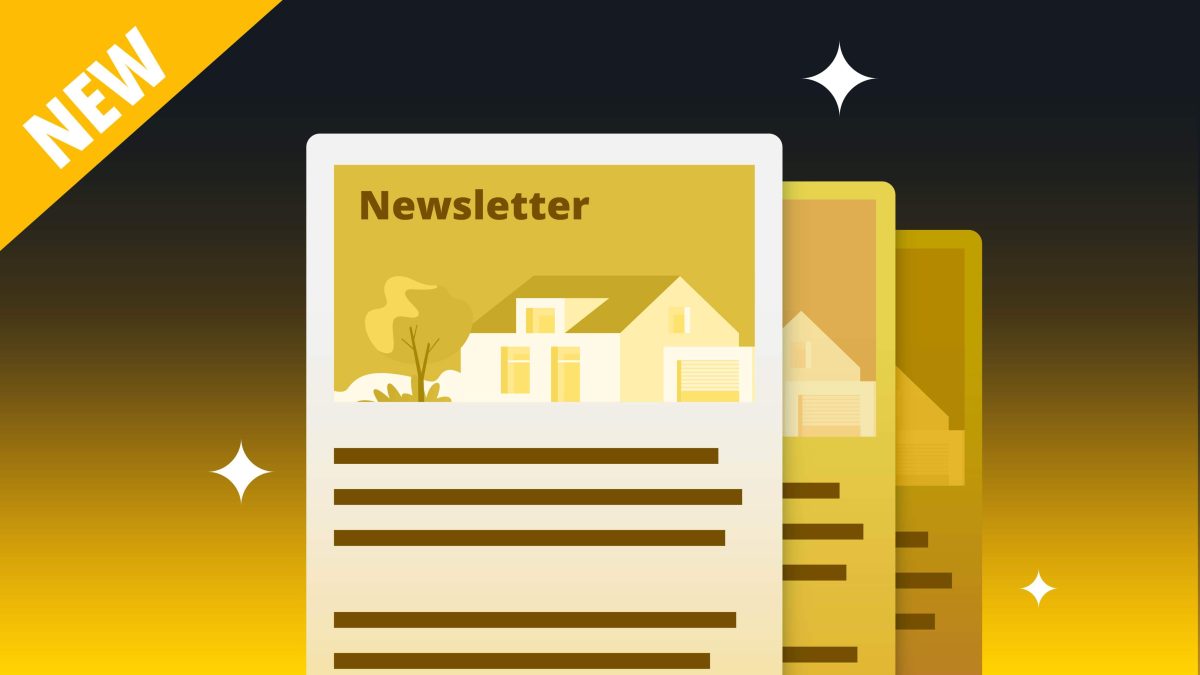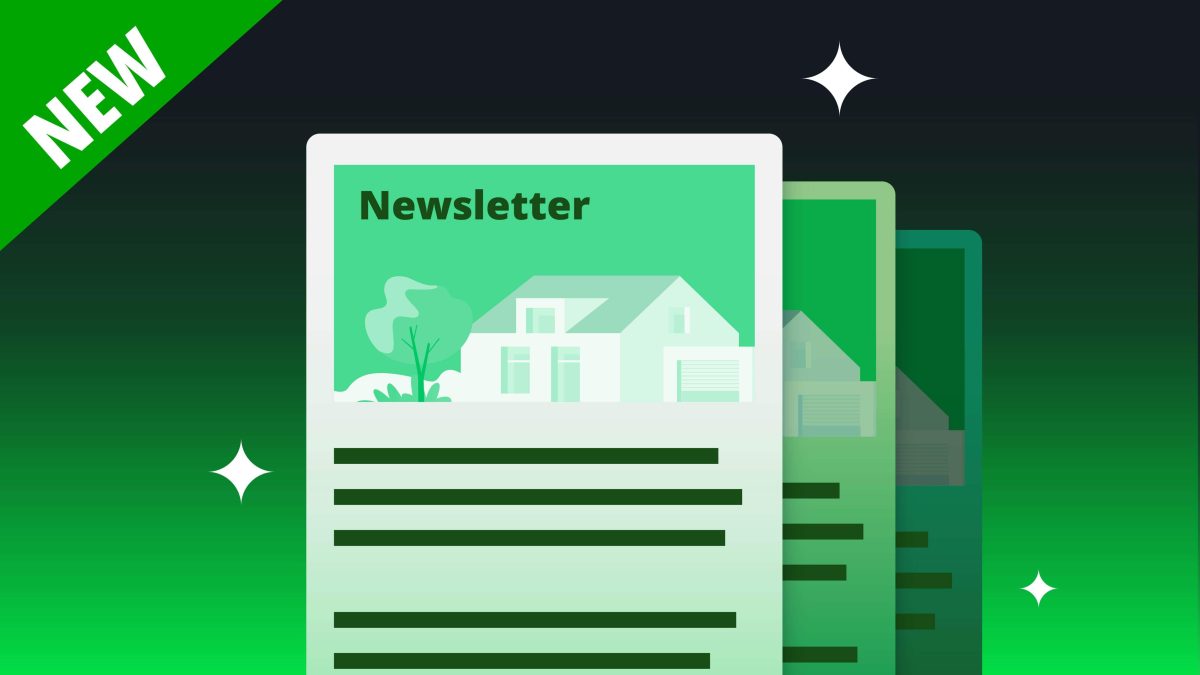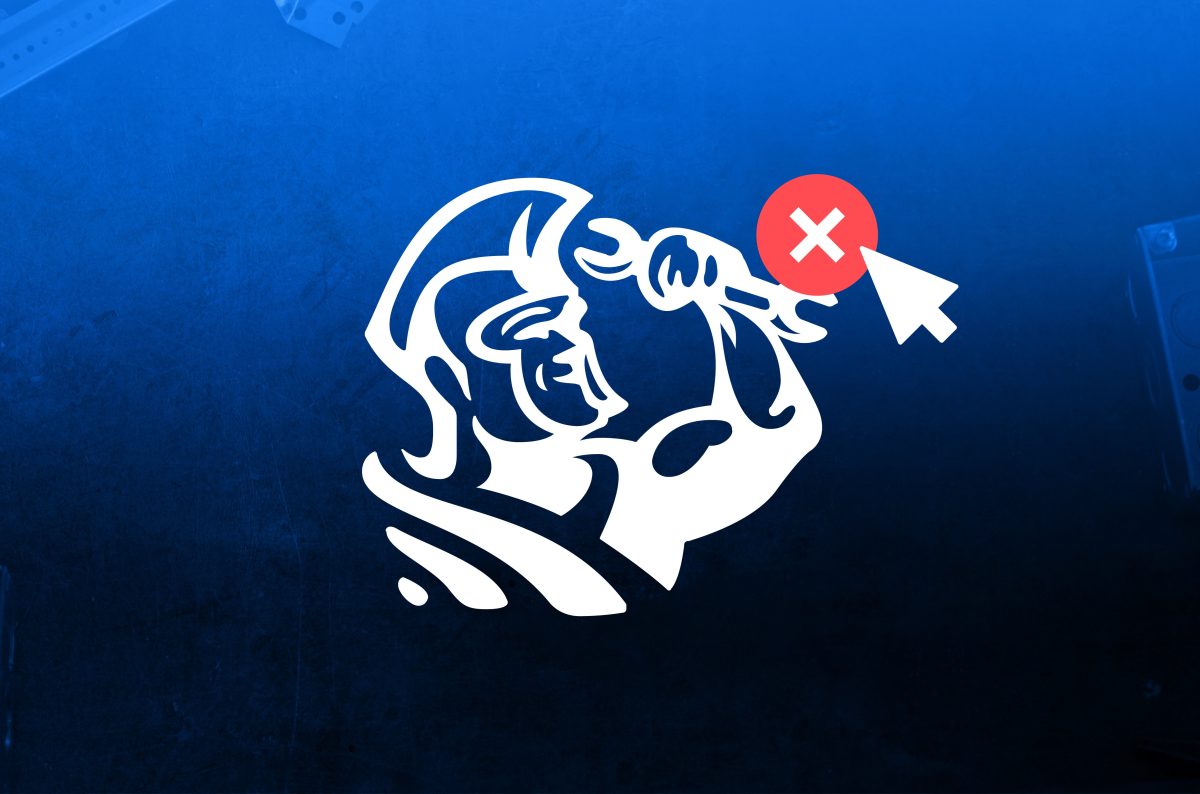No matter the focus of your home services business, your number one concern should always be your clients.
From electrical to HVAC to plumbing and everything else that falls in between, whatever your trade, a happy, satisfied customer is important to your current success.
And, of course, your future growth.
How then, with all of the responsibilities of keeping your business moving forward, can you manage the expectations of your customers and keep your marketing and sales teams on track at the same time?
One of the best ways to organize and guide the customer side of your business is through the use of a Customer Relationship Management (CRM) system.
Benefits Of A CRM For A Small Business
If yours is an established home service company, you’re probably ready to move beyond tracking all of your customer data by hand.
If you’re a new start-up, gaining a market presence as fast as possible is the key to success.
If you fall somewhere between, it means you’re ready to take the next step in your company’s evolution and need to streamline your sales and customer service.
To compete on any of these levels, you need a solution that kicks down the barriers to greater success. That’s where a CRM can make a difference.
At one time, the CRM was strictly a tool for only the biggest of corporations. However, with much of the software now possessing relatively low entry-level costs and the robust features once previously out of reach for small business, the CRM is now a difference maker for all companies – of any type and any size.
A CRM can help you scale your business to your current needs. Better communications, more focused marketing, and a stronger sales approach.
Finding the right CRM will also put you in control of the business-client relationship, with features that will help your small or growing firm carry a big presence.
But that’s just a sample of what a CRM can help you achieve. Let’s look at five of the most significant benefits of a CRM for small businesses.
1. Improves Customer Service
We might as well start with the most crucial aspect of a CRM. From setting an appointment to receiving a bill, customers have certain expectations of how the service process should evolve.
Deliver on those expectations, and you gain a long-term customer. If you fail, it could spell bad news for your business.
How does a CRM fit into this vitally important equation?

According to a business poll from Capterra, 47% of CRM users noted it made a significant impact on both customer satisfaction and retention.
CRMs allow you the ability to automate much of your customer related operations. This automation lets you be consistent with your service, regardless of where a client is during the sales and retention cycle.
A few of the customer related tasks a CRM can help you automate include:
- Marketing: Generate specific communication to a targeted list of potential clients.
- Sales: Help your sales team automate repetitive tasks so they can spend more time one on one with potential customers.
- Invoicing: Once you finish a job get your billing out faster than clients expect (plus you get paid more quickly).
- Follow-up: Send timely surveys to keep the customer engaged and open up future service opportunities.
- Ongoing Relationship Management: Tailor a customized plan for each client by understanding their purchase history, service schedule, or engagement preferences.
Ultimately, with a CRM you can deliver a more timely, efficient, and personalized experience to your customers.
2. Optimizes Your Marketing Efforts
From brand new start-up to long term provider, having a cohesive marketing plan ensures your brand is continually expanding.
CRMs remove a lot of the guesswork that comes with establishing or maintaining a market presence. With a CRM in your corner, you can more quickly analyze market data and act upon a number of variables that help focus your business approach. A few of the most notable include:
- Understanding Who Your Ideal Client Is
- Targeting the Specific Needs of Those Clients
- How to Respond to Client Behaviors
- When is the Best Time and Most Beneficial Methods to Promote Services
- Frequency and Method of Ongoing Client Engagement
CRMs help you market better by informing how to use your resources and when to employ specific strategies to maximize your service and sales – and their success is proven.

According to Nucleus Research, investing in a CRM returns on average $8.71 for each dollar spent. That’s certainly an impressive ROI.
3. Creates a Better Sales Team
Even if you employ a driven, hard-working sales team, old-school sales and marketing techniques can create unavoidable disconnects.
Your data isn’t shareable between reps or departments. Or it’s difficult to access it across numerous channels.
Certain reps excel at closing sales while others fall behind.
There’s no clear schedule for reps to make sales calls, and they are unable to manage when to communicate or follow up with a client.
If you’re tracking it all manually, it can be challenging to identify shortcomings and develop strategies where you can improve.
With a CRM however, you can bring your sales team together and get them working more cohesively as a group. A CRM will assist in:
- Organizing customer sales and service data into a central database, where all team members can access the information at any point in time from almost any device.
- Tracking agent performance to help you identify who might need more training or whose talents may better serve your company somewhere other than sales. Conversely, you can also pinpoint your top agents and reward them accordingly.
- Equipping your team with real-time data points to promote cross- and upselling opportunities that can turn a basic sales call into an opening for generating even more revenue.

Numbers from SalesForce show that by using a CRM, you can increase sales by 29% and sales productivity by 34%.
4. Makes You More Efficient
Better customer service. Better marketing. Better sales. Notice a pattern?
A CRM is designed to improve your overall operations, and much of it comes from making multiple aspects of your business more efficient.
From centralizing data to streamlining your analysis to improving customer engagement a CRM helps your team avoid redundant work, common errors, and overlapping service calls.
Basically, your organization can work smarter, not harder, while still aiming towards the same collective goals.
CRMs also improve your reporting, giving you access to more accurate and usable data than that collected through manual means. Robust reporting also means looking at the reports that are important to you without sifting through numbers that are often just filler.
In addition, a CRM can eliminate a lot of tedious tasks through automation. Necessary functions such as billing, follow-up surveying, or the completion of forms or other vital paperwork can all be simplified.
Not only does this level of automation improve the pace and accuracy of your operations, but it also produces the added benefit of providing customers with a better overall experience.
Plus, CRMs allow your business to go mobile. Nucleus Research shows that this alone can increase productivity by more than 25%.
5. Enhances Your Communications
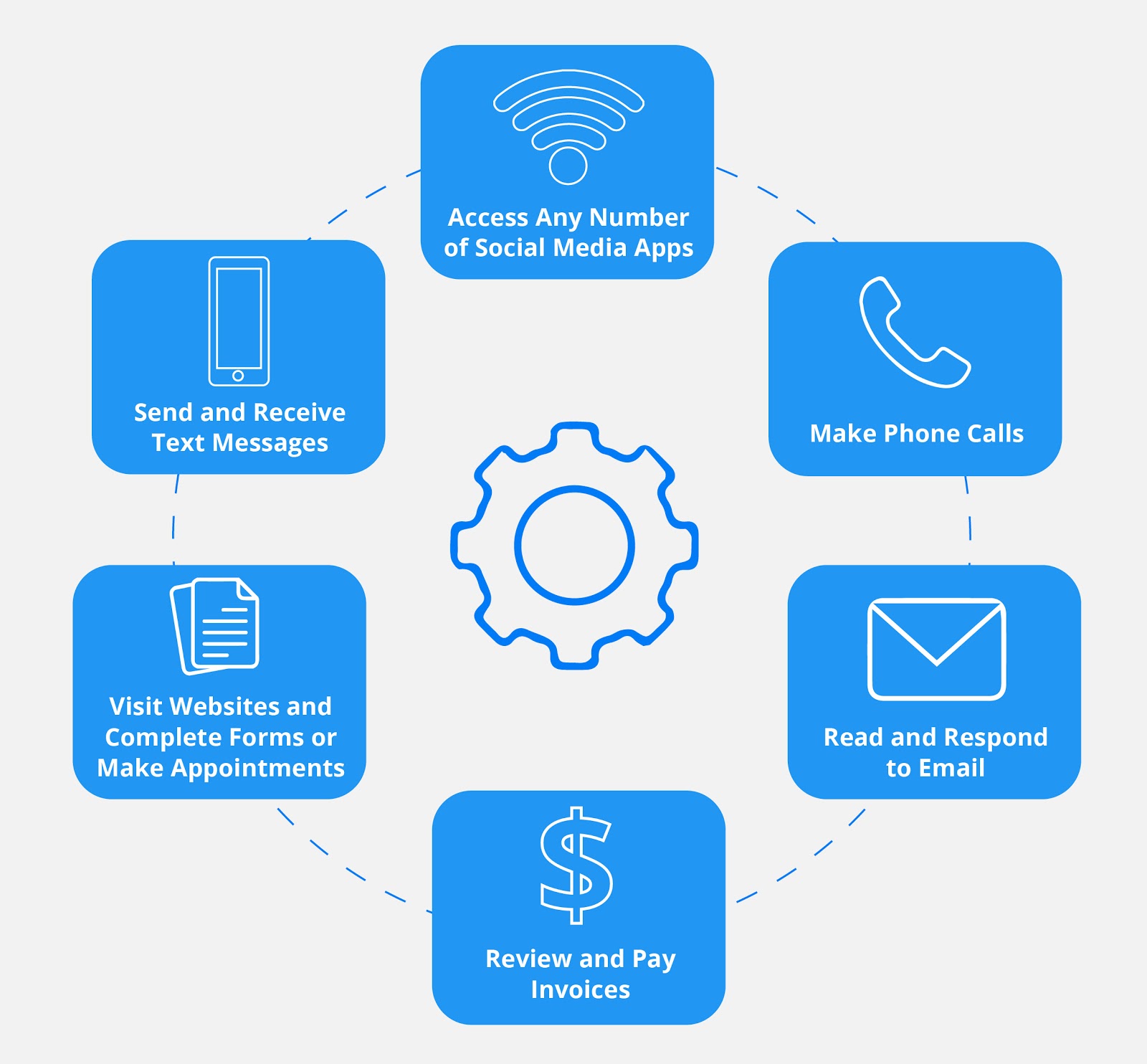
Speaking of going mobile, our methods of communication are increasingly on the move. With a single handheld device people can:
- Make Phone Calls
- Read and Respond to Email
- Send and Receive Text Messages
- Access Any Number of Social Media Apps
- Visit Websites and Complete Forms or Make Appointments
- Review and Pay Invoices
It makes sense then to have a business tool that helps to consolidate the various ways you need to communicate and interact with both current and would be customers.
A CRM puts all of these communication points in a single spot. When centralized, it’s easier for your team to review past engagement, capture new interactions, and work with clients in real time.
A CRM doesn’t stop there though. For your company to truly be successful, it must engage customers where they spend the majority of their time, and today that means social media.
For a small to medium-sized service company managing social media accounts can be a massive undertaking – but it’s a necessity regardless of your business.
A CRM lets you manage your social media presence – Facebook, Twitter, Instagram, LinkedIn – so you can easily post, respond, and maintain a consistent message across all platforms.
Faster and more accurate communication leads to much greater visibility and productivity for your brand.
How to Identify the Best CRM Solution
When choosing a CRM, there are some questions you’ll need to ask before determining which solution will help your business. Many of these questions involve the specific needs and goals of your business.
With that in mind, let’s examine four essential considerations you should make when identifying a CRM solution.
1. Affordability
As with most any service, CRM software comes in all flavors, which means so do their price points.
Initially, the majority of the CRM platforms in the marketplace appear relatively inexpensive, with most offering free trials to try out their solution. Though once you commit to a service, the entry-level pricing may rapidly increase.
Therefore, it’s critical you set a limit for what your company can or is willing to spend and then understand the price structure of each service you consider. Be sure to explore potential hidden costs such as:
- Setup or Training Fees
- Costs for Extra Data Storage
- Customization Charges
- Premium Options for Contact Volume
- Escalating Fees for More Reporting
- A La Carte Pricing for Additional, Non-Standard Features
Set a budget, do your research, ask plenty of questions and determine which CRM pricing structure best serves your spending goals.
2. Integration
With integration, there are actually two things consider – how a CRM will integrate with any existing business tool you’re using, and how easily it will mix with your current sales and marketing processes.
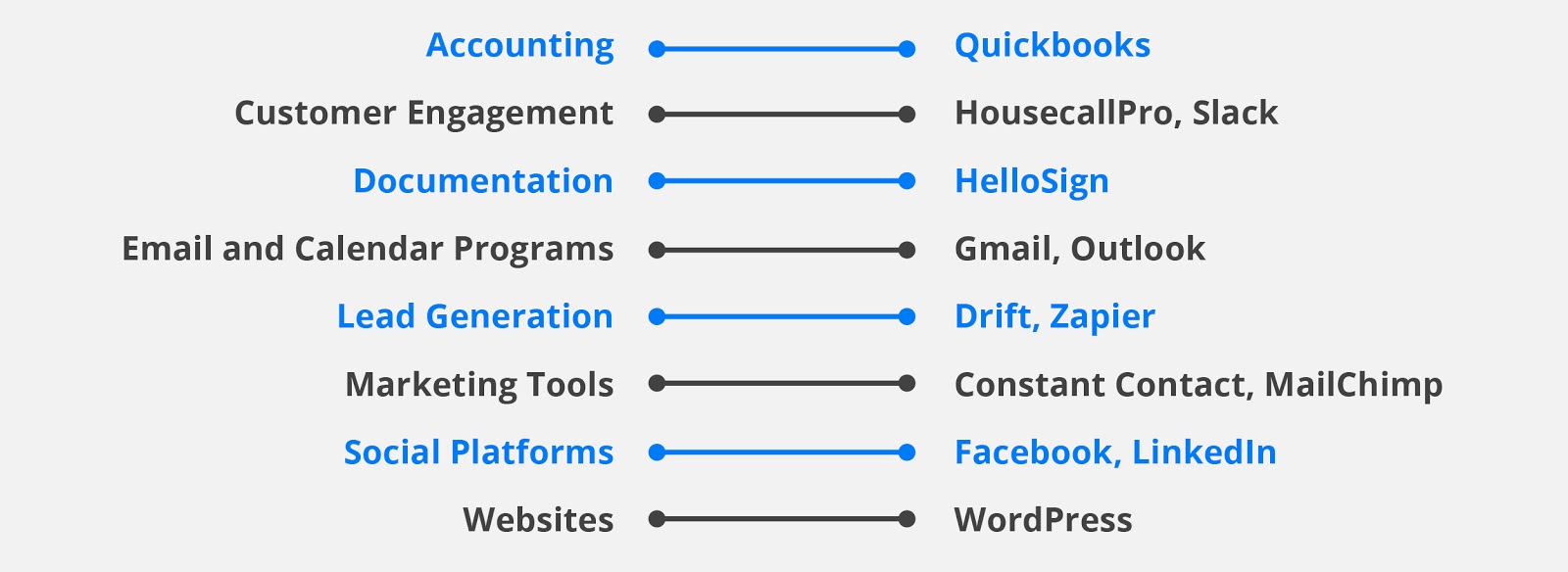
For business tools, any CRM worth its salt will successfully integrate with the majority of services you currently use. A brief sampling of integration points to be mindful of include:
- Accounting (Quickbooks)
- Customer Engagement (HousecallPro, Slack)
- Documentation (HelloSign)
- Email and Calendar Programs (Gmail, Outlook)
- Lead Generation (Drift, Zapier)
- Marketing Tools (Constant Contact, MailChimp)
- Social Platforms (Facebook, LinkedIn)
- Websites (WordPress)
As you can see, there is a lot to consider up front, but it is well worth the time once you fully reap the benefits of consolidating all of your tools into one place.
When it comes to integration of your sales and marketing operations, the single most important question to ask is will the platform be easy for your team to use. After all, you want their focus on generating new business and retaining current clients.
In addition, make sure you can import existing data into the new platform and that it doesn’t force you to rethink your entire sales and service approach.
For the most part, a CRM is made to be easy to use, but make sure you know the learning curve and limitations involved with each provider when narrowing down your choices. You want an onboarding process that is seamless and positive and results in a quick adaptation.
3. Infrastructure
Determining how you will deploy a CRM within your organization comes down to your current structure and if you plan to change the setup in the future.
When choosing between a SaaS (software as a service) CRM, which are cloud-based platforms, and an in-house CRM, where you own the software outright, you should consider the following:
- How much authority do you want (or need) to have over the platform and data? In-house you oversee it all, SaaS comes with less control.
- Will you employ an IT team to handle an in-house solution or source with a third-party?
- Do you want to make a substantial initial investment with in-house setup or put up little upfront money but potentially spend more upgrade dollars over time?
Ultimately, whatever CRM solution you choose now doesn’t mean you have to stick with it for the life of your business.
The importance of infrastructure is knowing where you want to be for the immediate future but then leaving yourself enough flexibility should your needs change.
4. Business Needs and Customization
When looking at a CRM, it’s important to recognize if you’re getting an out of the box solution or one that can move as your company moves.
Even within the home services industry, there is specialization.
You’ll want a CRM that best serves the needs of your unique business. Look at who different providers have worked with and identify ones that understand your company’s specific requirements.
Keep in mind that this doesn’t just extend to your business type and necessary integrations, but also where your business operates. There may be local considerations that are vital to the growth of your brand, so make sure the CRM can tap into this aspect to meet those needs.
Last, make sure your CRM can grow as your company does. Choosing a CRM that specializes in small businesses won’t help your already medium sized business get to the next level.
Find a service that supports where you are now and offers scalability that will support you as your business develops.
The Best CRM Solutions
With CRM solutions there is plenty of choices, so take your time reviewing what each one offers and their pros and cons.
A CRM ends up as a partner to your firm, so you’ll want to ensure they fit as a worthy complement to your brand. Check references and the platform’s reputation as well to make sure its a good match.
Almost every CRM offers a free trial, so take advantage of the trial period to grasp the features and functionality of each platform. Employing a CRM to help your company is no small endeavor, so your due diligence should match its level of importance.
To help get you started in finding the right CRM, here seven of the most popular solutions today:
1. Housecall Pro
We’d be remiss if we didn’t mention Housecall Pro in this list of CRMs. If you’re looking for a robust CRM at an extremely reasonable price, look no further. With features such as easy scheduling, digital estimates, online booking, dispatching, on-my-way texts, and live map GPS, Housecall Pro has everything you need to effectively run your small business. It really is the all-in-one app you need to run your business.

2. HubSpot
One of the two biggest names in CRM (along with Salesforce below), cloud-based HubSpot is known for ease of scalability, simple onboarding and usability, and the capacity to evolve as your company grows. One of HubSpot’s best attributes is the focus the system places on customer relationships and allowing businesses to build them organically.
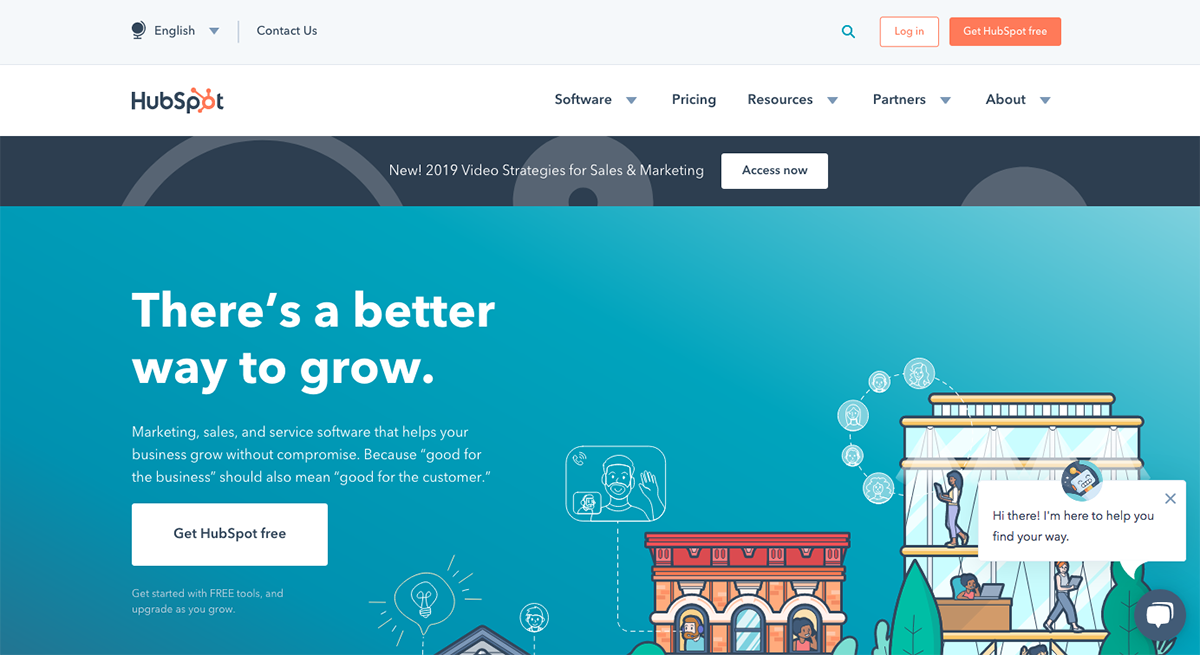
3. Salesforce
Though pricey, if you can afford it, there are few all-in-one CRMs more powerful than SalesForce. Once exclusive only to large corporations, SalesForce now offers small and mid-size business solutions that help get your CRM initiatives up and running with little stress on your end. The platform is particularly helpful for those looking to improve support and sales capabilities and will scale to a business’ needs no matter where they are in the growth cycle.

4. Zoho
Zoho is all about customer engagement. Tools include seamless communication on social media platforms as well as enhancing customer interaction through traditional outlets like phone, email, and live chat. A central database helps to keeps these conversations organized and accessible. Reporting is also a strength to help pinpoint both sales performance and in measuring the client journey.

5. Pipedrive
Pipedrive proves a flexible CRM for all business types with keen attention to enhancing the overall sales process. Identifying both the good bad of your sales generating pipeline, Pipedrive helps to serve up actionable data to keep your lead generation and sales on track. It is also a great tool for those that subscribe to the robust sales funnel method.
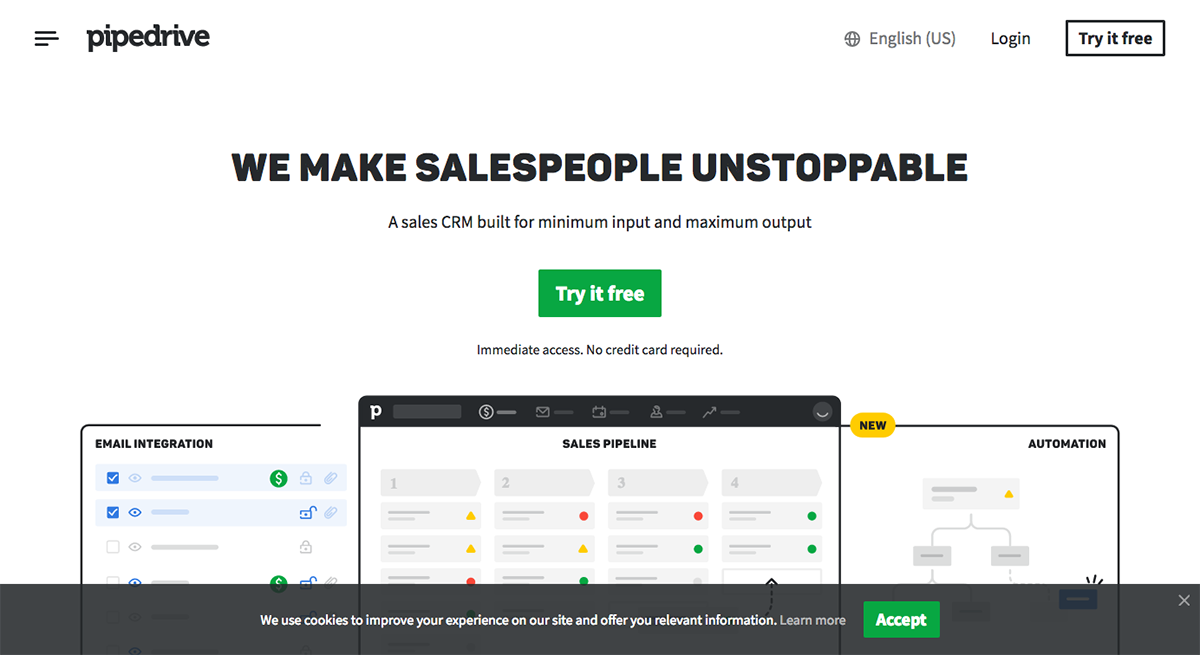
6. SugarCRM
If your company is looking for a fully customizable CRM solution, SugarCRM is worthy of your time. Geared towards developers, this platform helps you create a solution that fits precisely to your business needs. Because of the level of personalized modification available, it’s essential that you employ a knowledgeable and very talented IT team to get the most from this software.
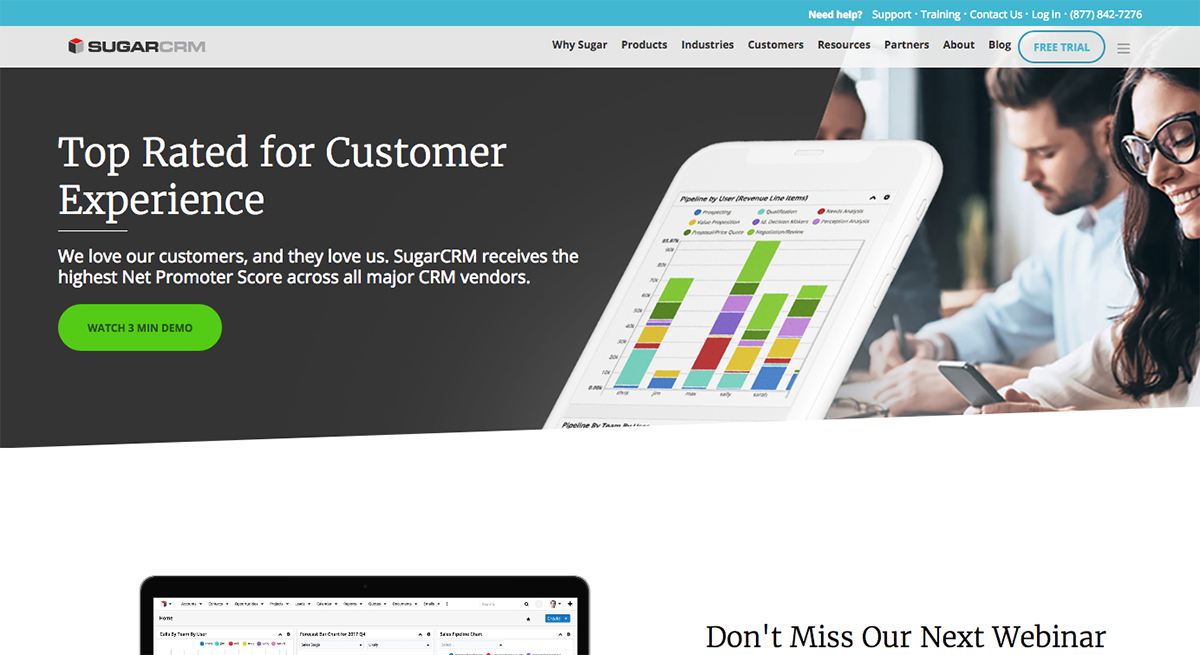
7. Freshsales
Online CRM Freshsales is best suited for firms that deal in volume sales. In addition to sales centric tools like lead scoring, behavior tracking, and bulk email customization, you can easily track the customer’s journey from the first contact on through to personalized communications after service.
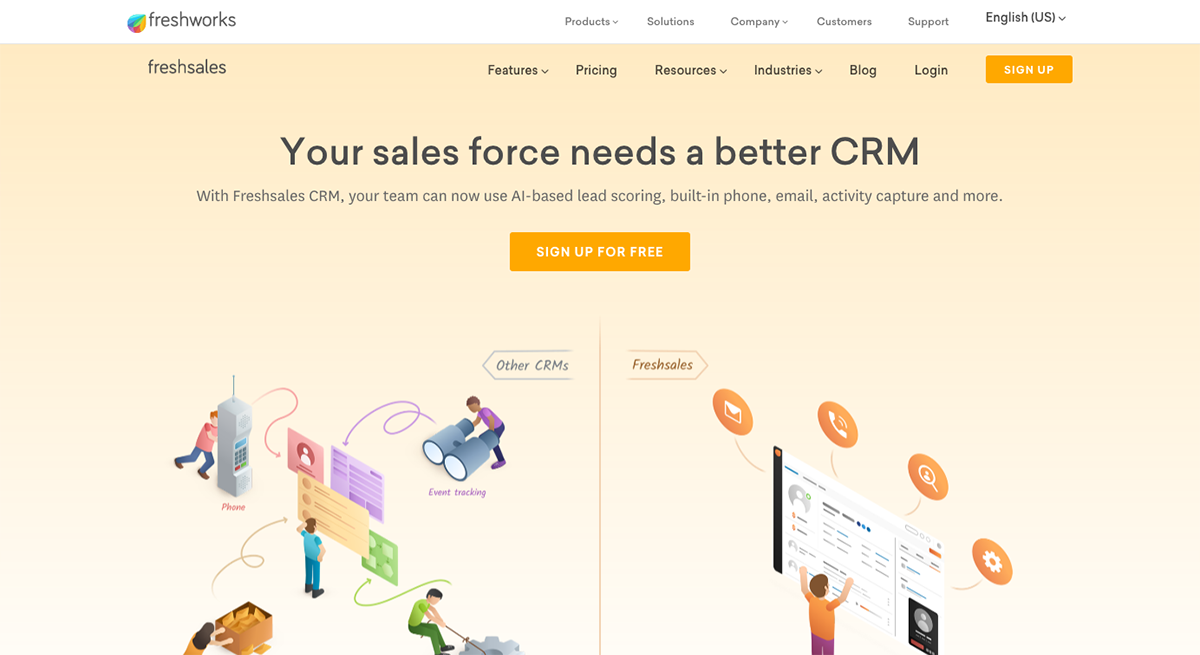
8. Less Annoying CRM
Funny name for sure, but if you’re seeking out a CRM solution on a modest budget, Insightly is a great option to consider. Understandably not as robust as other platforms, Insightly offers a more straightforward approach to managing your sales and customer engagement activities. Excellent for small businesses, Insightly can also provide value for larger firms wanting to take their CRM endeavors a bit slower.
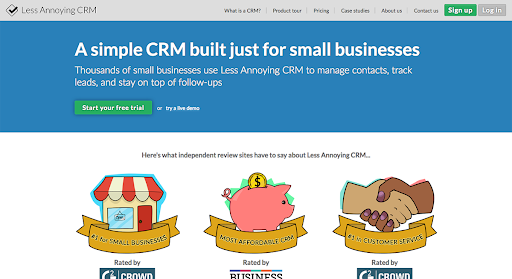
Final Thoughts
Sure, that is a lot to consider, but if you aim to get all of the customer-related elements of your business tracking towards the same goal, then a CRM is worth the time and effort necessary to integrate it with your business.
Just remember that a new platform meant to consolidate your marketing, sales, and service requires patience, due diligence and an eye on your current needs and your future objectives. Finding the right CRM will help get you exactly where you want to go.

